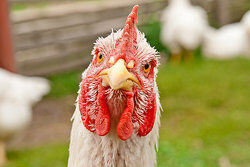Pin Definition
- to get (someone) to make a decision, commitment, etc.
- to determine or confirm (a fact, details, etc.)
- to beat, defeat, or scold someone soundly
- to lay the blame for something on someone
Idioms, Phrasal Verbs Related to Pin
- pin down
- pin someone's ears back
- pin something on someone
Origin of Pin
-
From Middle English pinne, from Old English pinn (“pin, peg, bolt"), from Proto-Germanic *pinnaz, *pinnō, *pint- (“protruding point, peak, peg, pin, nail"), from Proto-Indo-European *bend- (“protruding object, pointed peg, nail, edge"). Cognate with Dutch pin (“peg, pin"), Low German pin, pinne (“pin, point, nail, peg"), German Pinn, Pinne (“pin, tack, peg"), Bavarian Pfonzer, Pfunzer (“sharpened point"), Danish pind (“pin, pointed stick"), Norwegian pinn (“knitting-needle"), Swedish pinne (“peg, rod, stick"), Icelandic pinni (“pin"). More at pintle.
From Wiktionary
-
No relation to classical Latin pinna (“fin, flipper, wing-like appendage, wing, feather"), which was extended to mean "ridge, peak, point" (compare pinnacle), and often confused with Latin penna (“wing, feather"). More at feather.
From Wiktionary
-
Middle English from Old English pinn perhaps from Latin pinna feather pet- in Indo-European roots
From American Heritage Dictionary of the English Language, 5th Edition
Find Similar Words
Find similar words to pin using the buttons below.





